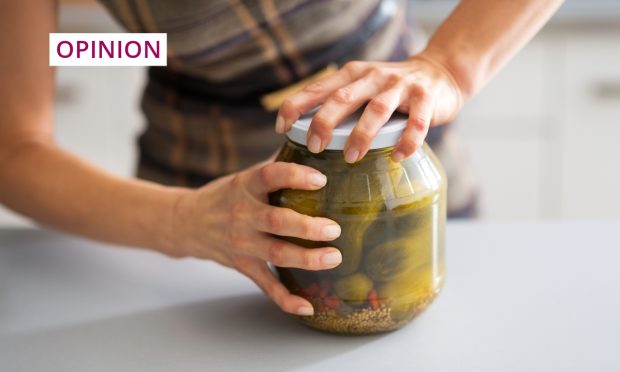I saw a telly advert for “automatic” shoes the other day, which I thought would suit me down to the ground.
Well, not exactly automatic. That would need a form of motorisation, which sounds dangerous in the wrong hands, let alone feet.
People are alarming enough on foot as it is; if their heels were motorised, imagine the mayhem.
Look at me: I fell out of my slippers while trying to get out of a pair of slim-fit pyjamas and snapped a tendon in my finger. Twelve weeks in a splint. Ah, the joys of ageing gracefully.
No, with these shoes you just step into them from a standing position and off you go. The process cuts out bending or fiddling about with your fingers to get them on.
That’s the attraction, of course – these simple tasks aren’t so easy as you get older. Our knees turn into terrible twins who rebel against the brain and refuse to obey orders. We go all “fingers and thumbs” with painful, clumsy, arthritic hands.
Does anyone really care when older people start falling apart? Do they fall down the pecking order with doctors, for example?
You can understand doctors investing time and energy in young people with half a century or more to live. But not so much with those who maybe have less than a decade left, or even a year or so. It’s like the law of the jungle: the old and weak fall by the wayside.
Covid and flu are an exception, of course, as old people remain top of the priority list for booster jabs, or they would be wiped out en masse.
I’m talking more about the everyday ailments you can’t do much about, because there is no cure for old age.
Like opening a new sealed-tight jar of beetroot or pickled shallots; that was always my job. I prided myself on my prowess at this manly task when my wife handed jars over for me to open. Now I have to hand them back to see if she can do it. Or we end up prising them off with a table knife, which raises the possibility of stabbing ourselves to death.
Which brings us back to doctors.
Can and can’t-do attitudes seem to make all the difference
I have “a tale of two surgeries”. It’s not something Dickens would have recognised in A Tale of Two Cities. But it’s also “the best and worst of times” with the NHS.
It was 8.30am and the early rush for appointments at a surgery on the edge of Birmingham. We had travelled from Aberdeen due to an aged relative’s health crisis.
Social services urged us to get a doctor to check her out because she was only taking half her medications as she kept throwing her daily carers out due to dementia.
It was a potentially fatal situation for a housebound woman of 90, classed as technically having heart failure.
I was 14th on the grid to speak with a receptionist. By the time I reached pole position half an hour later, the previous 13 had taken their toll.
“It’s not our job to give her meds,” the receptionist snapped. She had woefully missed the point.
I persuaded her to speak with a GP. “It’s not medical, go back to social services,” was the final answer. Days later, social services finally succeeded in getting the practice to send out a district nurse.
Around the same time, we were asking our own Aberdeen GP about my wife’s ankles, which swell painfully when she flies off on holiday. The first appointment they offered was a week after she got back from our hols, but they eventually slotted her in before she went away, for which we were grateful.
Irrespective of the differing medical situations, it seemed there was a can-do attitude in one place and “can’t do” in the other.
Singing straight from the heart
On our Spanish holiday, oldies were out in force at the complex as children were back at school. Waves of grey flowed through the epicentre of entertainment, which was the clubhouse.
We turned up for a late-night drink after going out for dinner, expecting to see an Elvis impersonator. But we blundered into old folks’ karaoke. Our hearts sank, but the mood changed as we listened.
There was a certain charm and warmth as, tottering on stage, they belted out classics like My Way, I Believe, Always on My Mind, You’re the One That I Want.
It dawned on us that these performances were from the heart, a life lived and having a special personal meaning for singers and audience. Thoughts of loves lost and loved ones, too.
It was a lovely night, until a bottle of red arrived – and we couldn’t open the screw top. An 18-year-old barman, old enough to be our grandson, did the honours. We needed no help drinking it.
David Knight is the long-serving former deputy editor of The Press and Journal
